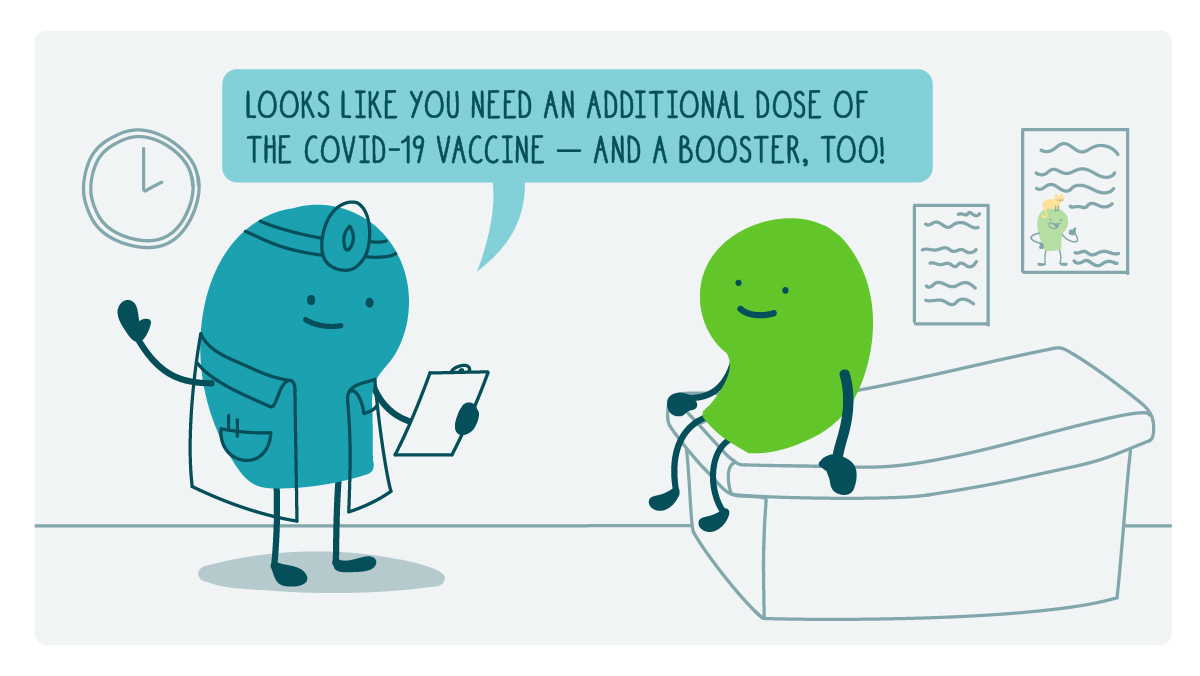
Public health friends, rejoice! The Centers for Disease Control and Prevention (CDC) has strongly recommended COVID-19 boosters for all adults. And a late-breaking update — as of TODAY, teens ages 16 and 17 can get boosters, too! The news comes not a moment too soon, as many of us are getting back into the groove of festive holiday celebrations with family and friends. Now is the time to encourage your audiences to get that booster!
Easy, right? Well, mostly. You’ve heard about boosters — but what about an extra dose for immunocompromised people? Yep, some people with immune system issues may not get full protection from COVID-19 vaccines. That’s why CDC recommends an “additional primary shot” of mRNA vaccines for this group. Here’s how it works:
- Immunocompromised people get the extra dose at least 28 days after their second dose of Pfizer or Moderna
- Then, at least 6 months after their additional dose, they get the same booster as everyone else
(At this point, there’s no additional dose for people who got the Johnson & Johnson vaccine.)
It makes sense that people with immune system problems need extra protection. But with all the focus on boosters, the additional dose can get lost in the shuffle — or confused with a standard booster. We’ve even heard from friends of the blog that some doctors aren’t making a distinction between boosters and additional doses. If that’s true, immunocompromised folks who aren’t inclined to carefully track COVID vaccine guidance may not know they need an additional shot. Yikes.
To further complicate matters, many immunocompromised people got vaccinated back when COVID-19 vaccines first became available. Because this guidance didn’t exist yet, they missed the opportunity to get the additional dose 28 days after their second shot. So in practice, this guidance may only benefit people who have just become immunocompromised (say they just started cancer treatment) and haven’t gotten their original COVID-19 vaccine yet.
So how can health communicators explain all this nuanced info to immunocompromised audiences? Don’t ask us! Kidding, dear readers. We’ve got some ideas, but — with pandemic-related guidance ever in flux — we certainly don’t have all the answers.
But for now, consider using a blurb like this to encourage immunocompromised people to talk to their doctor:
If you have serious health issues that affect your immune system (the system that fights off infections), you may be able to get an extra dose of the COVID-19 vaccine. Make an appointment to talk with your doctor about the vaccines you need to stay safe from COVID-19.
If you find yourself concerned about this approach given the mention of doctors above, gold star for paying attention! That’s why we’re also encouraging immunocompromised audiences to print out (or pull up on a smartphone) this page from CDC to discuss during the appointment. Doctors may not have all the answers either, but we certainly can’t expect patients to figure this out on their own. And while we haven’t untangled all the pieces here, helping people start a conversation with a medical professional is a solid first step.
Has the additional dose come up in your COVID-19 communication efforts? We’d love to hear your thoughts!
The bottom line: People with health conditions that affect their immune system may need an additional dose of mRNA vaccines AND a booster to protect against COVID-19 — but they may not know it. Encourage your audiences to talk to their doctors about getting the best protection.
Browse recent posts